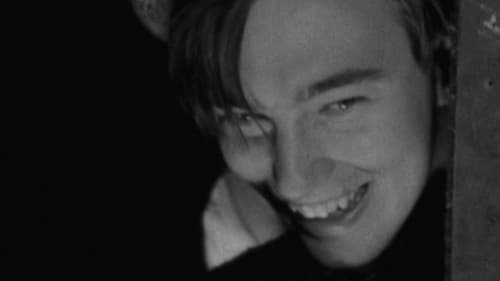James Tenney
Рождение : 1934-08-10, Silver City, New Mexico, USA
Смерть : 2006-08-24

Sound
Procedurally-generated frames slowly expand in density to visually explore the mind of a psychopathic, narcissistic teenager, up until the demise of the subject.

Music
BRAKHAGE explores the depth and breadth of the filmmaker’s genius, the exquisite splendor of his films, his magic personal charm, his aesthetic fellow travelers, and the influence his work has had on generations of other creators. While touching on significant moments in Brakhage’s biography, the film celebrates Brakhage’s visionary genius, and explores the extraordinary artistic possibilities of cinema, a medium mostly known only for its commercial applications in the form of narratives, cartoons, documentaries, and advertising. BRAKHAGE combines excerpts from Brakhage’s films and films of other avant-garde filmmakers (eg, George Kuchar, Jonas Mekas, Willie Varela, Bruce Elder, and others); interviews with Brakhage, his friends, family, colleagues, and critics; archival footage of Brakhage spanning the past thirty-five years; and location shooting in Boulder, Colorado and New York.

Himself
BRAKHAGE explores the depth and breadth of the filmmaker’s genius, the exquisite splendor of his films, his magic personal charm, his aesthetic fellow travelers, and the influence his work has had on generations of other creators. While touching on significant moments in Brakhage’s biography, the film celebrates Brakhage’s visionary genius, and explores the extraordinary artistic possibilities of cinema, a medium mostly known only for its commercial applications in the form of narratives, cartoons, documentaries, and advertising. BRAKHAGE combines excerpts from Brakhage’s films and films of other avant-garde filmmakers (eg, George Kuchar, Jonas Mekas, Willie Varela, Bruce Elder, and others); interviews with Brakhage, his friends, family, colleagues, and critics; archival footage of Brakhage spanning the past thirty-five years; and location shooting in Boulder, Colorado and New York.

Music
Reel #5 of (...) is composed of scratch-imagery edited to music by James Tenney. The music starts accompanied only by black leader: then there is a sudden flare of pure white which begins to flicker with negative-colored ephemeral shapes, until finally the music and a fulsome mass of scratched images are accompanying each other. At times a distinctly different quality of colored image appears and continues for awhile (non-orange negative photography of painted film as well as picture images).

Music
This work, composed of six rolls of superimposed images set to Tenney’s electronic music track ‘Blue Suede’, is a celebration of the balletic restraints of adolescent sexuality — (shaped in this instance) by ‘The Nutcracker Suite’ of Tchaikovsky as well as the gristly roots of Elvis Presley. – S.B.

A silent film of collaged and painted sequences of lovemaking between Schneemann and her then partner, composer James Tenney; observed by the cat, Kitch.

Himself
This film consists entirely of close ups of famous persons' bottoms. Ono meant it to encourage a dialogue for world peace.

Self
Images of two women, two men, and a gray cat form a montage of rapid bits of movement. A woman is in a bedroom, another wears an apron: they work with their hands, occasionally looking up. A man enters a room, a woman smiles. He sits, another man sits and smokes. The cat stretches. There are close-ups of each. The light is dim; a filter accentuates red. A bare foot stands on a satin sheet. A woman disrobes. She pets the cat.

In Loving (1957), a couple make love in the sun and their optic system flares -- it's really the nervous system's ecstasy -- in oranges and yellows and whites. - Stan Brakhage

Four young men and a young woman sit in boredom. She smokes while one strums a lute, one looks at a magazine, and two fiddle with string. The door opens and in comes a young man, cigarette between his lips, a swagger on his face. The young woman laughs. As the four young men continue disconnected activities, the other two become a couple. When the four realize something has changed, first they stare at the couple who have kissed and now are dancing slowly. The four run from the house in a kind of frenzy and return to stare. The power of sex has unnerved them.

Music
A young man meets a young woman under a bridge by a railroad. They shelter from the rain and exchange a kiss. The man grows sullen and leaves. The film starts with him and ends with her. It’s a straightforward anecdote told in traditional ways, the likes of which he’d forsake forever; that is, it uses actors, a soundtrack with music and post-dubbed sound effects, a photographer who frames everything professionally and a coherent edited narrative.










